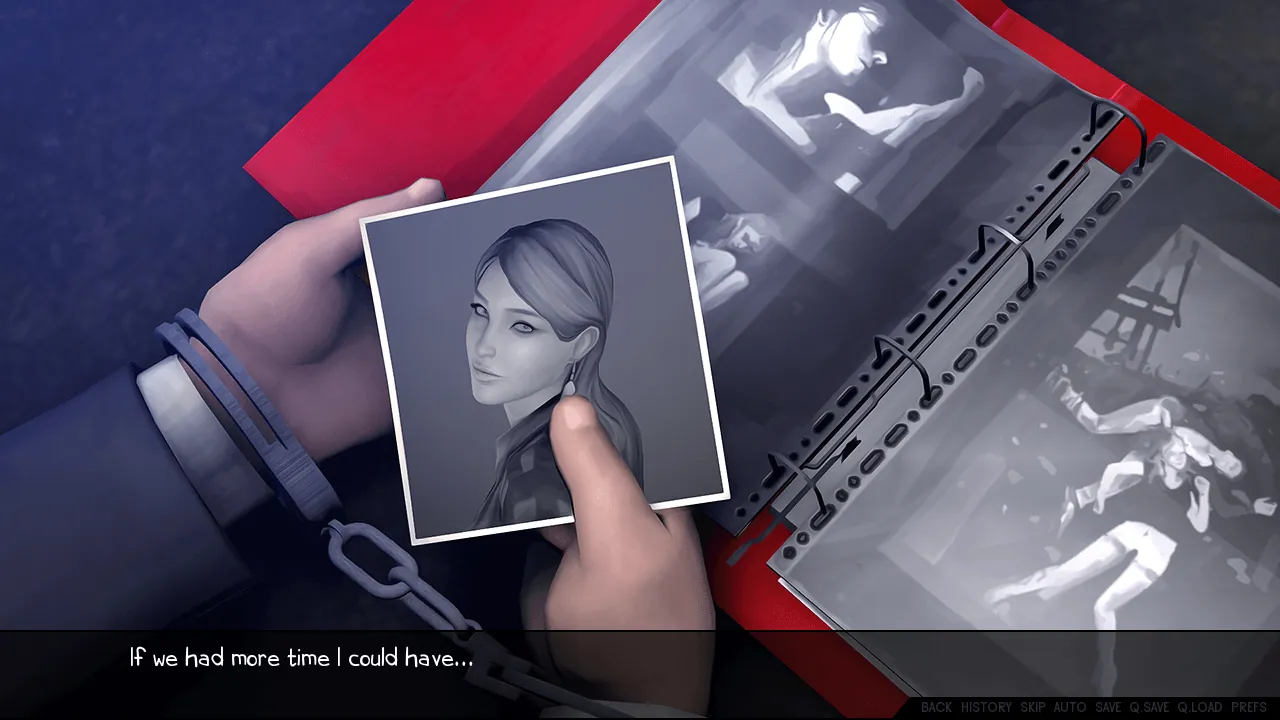
Short Sad Stories
Play Short Sad Stories
Short Sad Stories review
Exploring the Emotional and Interactive Experience of Short Sad Stories
Short Sad Stories is an evocative interactive game that blends narrative depth with emotional storytelling. Centered around Alice, a dreamy girl caught between reality and imagination, the game invites players to explore themes of love, loss, and longing through a unique visual novel format. This article delves into the game’s storyline, mechanics, and emotional resonance, offering insights and personal reflections on why it captivates its audience.
Unpacking the Storyline of Short Sad Stories
When I first booted up Short Sad Stories, I wasn’t prepared for the emotional gut-punch it delivered. 😢 This isn’t your typical game; it’s an intimate journey that pulls you into its world from the very first scene. The Short Sad Stories game storyline is a masterclass in weaving personal tragedy with interactive choice, making you an active participant in a tale of heartache. As someone who plays a lot of emotional narrative games, I was struck by how this one refuses to let you be a passive observer. You feel the weight of every decision, and that’s what makes its visual novel emotional impact so profound. Let’s pull back the curtain and explore what makes this story so unforgettable. 💔
Who is Alice? Understanding the Protagonist
Meeting Alice feels like reconnecting with an old friend who’s going through a rough patch. 🫂 From the moment you step into her shoes, her vulnerability is palpable. A thorough Alice character analysis reveals a woman grappling with the ghosts of her past—specifically, the loss of a profound love. She’s not a hero on an epic quest; she’s someone trying to piece her life back together, and that relatability is her greatest strength. I remember one playthrough where I had to choose whether she would revisit a cherished memory or try to forget it entirely. My own heart ached with hers, a testament to how well-crafted her character is.
Her motivations are deeply human: a desire for closure and the courage to face reality. 🎭 The Short Sad Stories game storyline expertly uses her internal monologue to let you in on her fears and hopes. What’s brilliant about this Alice character analysis is that she isn’t static; your choices shape her resilience or descent. In many emotional narrative games, protagonists can feel like blank slates, but Alice has a defined personality that evolves based on your interactions. This makes her journey feel uniquely personal.
Pro Tip: To fully connect with Alice, try making choices that align with how you would react in her situation. It deepens the immersion and makes the emotional payoff much more intense.
The interactive story themes here are powerful because they’re channeled through her. You’re not just watching her deal with love and loss in games; you’re guiding her through it. This personal stake is what elevates the experience from simply playing a game to living a story. My advice? Don’t rush through her dialogues. Savor them. You’ll find pieces of yourself in her reflections. ✨
Themes of Love and Heartache in the Narrative
At its core, Short Sad Stories is a poignant exploration of love’s aftermath. ❤️🔥 The narrative doesn’t shy away from the messy, painful parts of relationships. Instead, it embraces them, making the love and loss in games theme feel authentic and raw. I’ll never forget a moment when the game presented me with a flashback of a happy memory, only to sharply cut back to Alice’s lonely present. That juxtaposition hit me hard, and it’s a common technique used to deepen the emotional resonance.
The interactive story themes are not just background noise; they are the engine of the plot. Your decisions often revolve around how Alice processes her grief—whether she holds on to the past or tentatively steps toward the future. This is where the game’s visual novel emotional impact truly shines, as your choices directly influence the emotional tone of the story.
To break it down, here’s a table summarizing the key themes and how they affect you as the player:
| Theme | Description | Impact on Player Experience |
|---|---|---|
| Unrequited Love | Exploring the pain of loving someone who cannot reciprocate fully. | Evokes empathy and personal reflection on one’s own past relationships. |
| Memory and Letting Go | The struggle between cherishing memories and the need to move on. | Creates tension in decision-making, making players ponder their own coping mechanisms. |
| Hope Amidst Sorrow | Small moments of light in an otherwise dark narrative. | Provides emotional relief and encourages players to seek positive outcomes. |
Engaging with these interactive story themes feels like therapy at times. 🧠 The game doesn’t offer easy answers, and that’s its strength. In one of my sessions, I pushed Alice to be optimistic, and the narrative rewarded me with a bittersweet scene that felt earned, not forced. This handling of love and loss in games is nuanced, avoiding clichés and instead presenting a heartfelt, believable portrait of human emotion.
How the Story Blends Reality and Imagination
One of the most captivating aspects of the Short Sad Stories game storyline is its delicate dance between what’s real and what’s imagined. 🌌 This reality vs imagination game mechanic isn’t just a gimmick; it’s central to understanding Alice’s psyche. There were moments I wasn’t sure if a scene was a memory, a dream, or a painful fabrication, and that ambiguity is intentional. It mirrors how our minds can blur lines when dealing with trauma.
The game uses visual and narrative cues to signal these shifts. 🎨 For instance, vibrant colors might saturate a flashback, while the present is often depicted in muted tones. This technique enhances the visual novel emotional impact, making you feel Alice’s dissociation firsthand. I recall a choice where I had to decide if Alice should confront a painful truth or retreat into a comforting fantasy. The consequences of that choice ripple through the entire story, showcasing the reality vs imagination game at its finest.
This blending makes the Short Sad Stories game storyline deeply immersive. You’re not just told about Alice’s struggle; you experience the confusion and hope alongside her. It’s a masterful way to explore interactive story themes of perception and truth. My insight? Pay close attention to the environmental details—they often hold clues about what’s real and what’s a product of Alice’s mind. 🔍
In conclusion, the power of Short Sad Stories lies in its ability to make you feel deeply through its rich Alice character analysis, heartfelt exploration of love and loss in games, and clever use of reality vs imagination game elements. It’s more than a game; it’s an emotional journey that stays with you long after the screen fades to black. 💫
Short Sad Stories offers a compelling blend of narrative depth and emotional engagement, making it a memorable experience for players who appreciate story-driven games. Through Alice’s journey, the game explores complex themes that resonate on a personal level. Whether you are drawn to its storytelling or its immersive gameplay, Short Sad Stories invites you to reflect on the delicate balance between dreams and reality. Dive into the game to experience its poignant tale firsthand.









